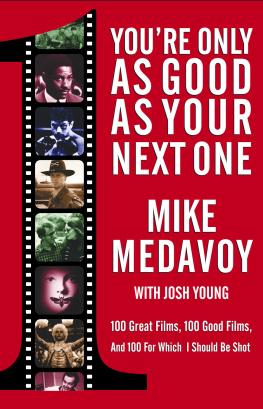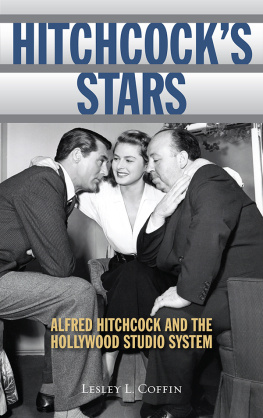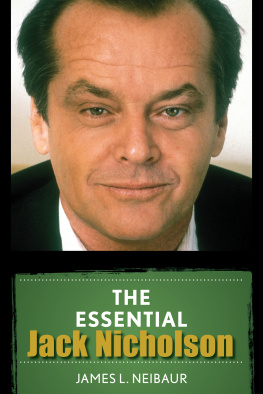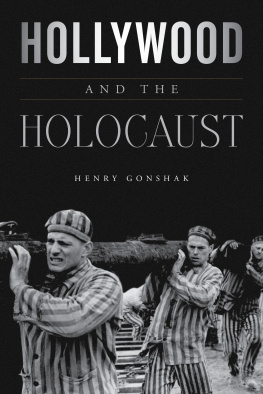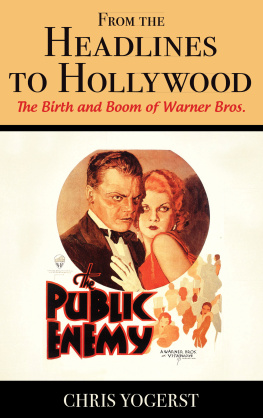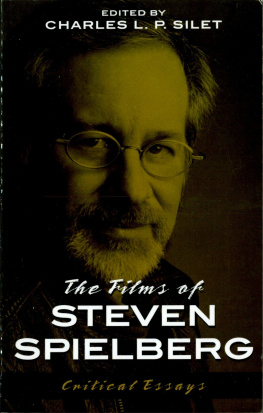Praise for Mike Medavoy and Youre Only as Good as Your Next One
The best book on Hollywood Ive ever read.
Larry King
A wonderfully readable book.
Liz Smith, New York Post
A frank and fond insiders memoir.
Mark ODonnell, People
A revealing glimpse into the mind of the studio executive.
Jonathan V. Last, The Washington Times
Entertaining and informative... remarkably candid... not the powder-puff recollection of memories that have characterized other Hollywood autobiographies.
Dale Pollock, The Hollywood Reporter
Highly readable... a lively treatise on the many joys and challenges associated with keeping a movie afloat.
Gary Dretzka, Screen
A refreshing departure from the typical gossipy Hollywood behind-the-scenes memoir... an engrossing exploration of what really makes Hollywood tick.
Richard W. Grefath, Library Journal
What follows are words from the heart: I cannot think of anyone who could have more faithfully chronicled the history of the movie business. Through the years, Mike Medavoy has made a wide variety of contributions to the film community. He has never faltered, he is a truly decent person, and we are all indebted to him.
Marlon Brando
Mike is a guy who really loves movies. This has made him unique and successful at everything he did: agent, studio head, producer. Hes also a good friend.
Barbra Streisand
Mike is rare in that group of hardball-playing studio chiefs. His loyalty to his own instincts as well as to people on the creative end has been consistent. He cares about what hes doing. Hes a good man.
Sean Penn
Mike Medavoy knows where every body is buried! This is a fascinating book about the inner workings of Hollywood.
Jackie Collins
The thing I love about Mike is that in a town where everybody stabs you in the back, Mike stabs you in the stomach.
David Permut, producer
The key to Mikes success is that he has the mental keys to the kingdom. He knows how the movie business works and he combines feral cunning with a notion of class.
Mark Norman, co-writer/co-producer of Shakespeare in Love (and Mike Medavoys former mailroom colleague)
Thank you for downloading this Atria Books eBook.
Join our mailing list and get updates on new releases, deals, bonus content and other great books from Atria Books and Simon & Schuster.
C LICK H ERE T O S IGN U P
or visit us online to sign up at
eBookNews.SimonandSchuster.com
Contents

To my wife, Irena, who reinforces that old adage that a great woman can give you a great life; my sons, Brian and Nicky; my sister, Ronnie; Irenas late mother, Margaret; and my parents, Mike and Dora
The business of film is the business of dreams.
NATHANAEL WEST
I dont think anyone should write their autobiography until after theyre dead.
SAMUEL GOLDWYN
INTRODUCTION
Movies Are Everybodys Second Business

I n fall 1999, entertainment attorney Peter Dekom embarrassed the hell out of me at an American Cinematheque tribute to Jodie Foster. After giving his welcoming remarks, he introduced me as his co-chairman by saying, Mike is writing a book. For ten thousand dollars hell keep your name out of it. Everyone laughed, but I cringed.
Ive never thought much of tell-all Hollywood memoirs designed to generate gossip-column items, nor have I particularly admired the kind of self-aggrandizing books that aim to heighten the profile of the author. I love what Mark Twain said about writing autobiographies: An autobiography is the truest of all books; for while it inevitably consists mainly of extinctions of the truth, shrinkings of the truth, partial revealments of the truth, with hardly an instant of plain straight truth, the remorseless truth is [emphasis my own] there, between the lines. That is why I have gone back and talked to some of the people who were there at different junctures of my career to find out the part of the truth that I might have missed along the way.
Ive always felt that one of the danger signs of age is when one dwells on the past, so I dont do that; rather, I try to learn from it, which is not an easy task in the film business, because everything is constantly changing. Nevertheless, Ive been counseled for years by colleagues to maintain a higher profile, to go out and tell everybody what Ive done, so I will be more valuableI havent got a clue what that value is and to whom I would be more valuable.
But spurred on by a post-open-heart-surgery new outlook on lifewhich included giving up my passion for cigarsand the little part of me that wanted to become a history teacher, I decided to write this book to document some of the amazing changes in the movie business that Ive seen firsthand over the last four decades, to debunk a few myths about how some movies got made, to give credit to some people who should have gotten it the first time around, and, selfishly, to make some sense of the journey. But rather than a compendium of my career, this is a look at the rocky road the movie business has traveled over the past four decades and how I absorbed the bumps. If anything, it was inspired by how different the process of getting a movie made and selling it to the public is today than it was thirty-six years ago.
Most filmmakers nowadays make twelve to fifteen movies in their lifetime. The most prolific actors might go before the camera in thirty films. As a studio executive, Ive had a hand in more than ten times that many films. Some I had almost nothing to do with; they were acquired by executives who worked under me or over me and then released. On others I was the catalyst in bringing the idea to the studio, and I remained intimately involved in the process of translating the idea to the screen. Of the three-hundred-plus movies Ive been associated with, I would say there are probably around one hundred or so really good ones, including eight Academy Award winners for Best Picture and seventeen nominations in the same category. There are another hundred or so Id watch myself on a rainy Sunday afternoon. And then there are about a hundred for which my colleagues and I should be shot for thinking it was a good idea.
In Hollywood terms, thats a pretty good record. And there is more to come.
Fade in: Shanghai, 1940. I, Morris Mike Medavoy, am born to Michael and Dora Medavoy.
We lived in China until I was seven. My father fled Communism as a child, escaped Russia, and found refuge in Shanghai. But in 1947 he knew it was time to find refuge again. My mother was born in Manchuria, China, the youngest of fifteen brothers and sisters. As the Communists prepared to invade China, my father sold all our furniture and his prized 1940 Plymouth and loaded the family onto a Dutch steamer.
I knew we were in danger, too. The first movie I saw in my life was a wartime Russian propaganda film about the Nazis. The image etched in my mind was that of a woman holding two hand grenades at the battle of Stalingrad, jumping under a tank to blow it up.
Heroism is a big emotional kick, but even at six I knew I didnt want my own mother doing that.
I have watched the movie business change many times over, in ways that I didnt fully realize until I sat down to reflect on how the thirty-six years have gone by. As a young agent, I carved out a niche for myself representing almost all the hot young directors of the early seventies, at a time when these guys were staging a creative revolution: Steven Spielberg, John Milius, Terry Malick, Philip Kaufman, Monte Hellman, George Lucas, Hal Ashby, and Francis Coppola. These roguish American auteurs created a cinematic style and legacy that continues to shape Hollywood to this day.
Next page
